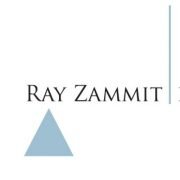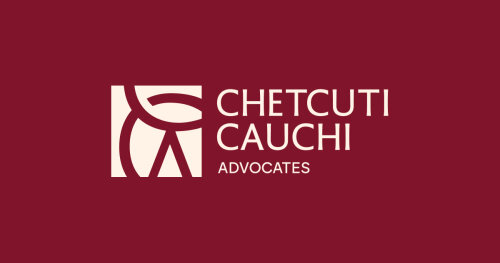Best Project Finance Lawyers in Valletta
Share your needs with us, get contacted by law firms.
Free. Takes 2 min.
List of the best lawyers in Valletta, Malta
About Project Finance Law in Valletta, Malta
Project finance is a specialized area of law and finance that involves securing long-term funding for large infrastructure or industrial projects based on the projected cash flows generated by those projects. In Valletta, Malta’s historic and economic capital, project finance structures often underlie developments such as energy facilities, transport infrastructure, and large-scale public projects. Maltese project finance law borrows from international best practices, while reflecting the local regulatory framework and practices established under Maltese law.
Valletta, as a financial center, is home to law firms and financial institutions with experience advising on the full life-cycle of project finance deals, from structuring and negotiation to compliance and post-completion matters.
Why You May Need a Lawyer
Engaging a lawyer who specializes in project finance in Valletta can be crucial for several reasons. Here are common situations where professional legal advice is recommended:
- Structuring complex financing arrangements for large projects, ensuring compliance with local and EU regulations
- Drafting and negotiating project agreements such as loan agreements, shareholder agreements, and construction contracts
- Conducting due diligence on the legal and regulatory aspects of the project
- Assisting with environmental, planning, and licensing requirements that are often integral to major projects
- Advising on risk allocation and mitigation among the various stakeholders, including sponsors, lenders, contractors, and public authorities
- Handling disputes that may arise in connection with the project
- Securing government and regulatory permits or approvals
- Ensuring that security interests and collateral arrangements are valid and enforceable under Maltese law
Having legal support helps parties anticipate legal pitfalls, adhere to compliance requirements, and protect their interests throughout the project's lifecycle.
Local Laws Overview
Project finance transactions in Valletta, and Malta more broadly, are governed by a combination of local statutes, EU regulations, and common contractual principles. Key legal aspects include:
- Companies Act: Sets the legal foundation for corporate entities involved in projects, including special purpose vehicles (SPVs) commonly used in project finance.
- Civil Code and Civil Procedure: Regulate contract formation, security interests, and dispute resolution.
- Banking Act and Financial Institutions Act: Oversee lending activities and the role of financial institutions in financing projects.
- Pledge and Hypothec Security: Local law provides for diverse methods of securing lenders' interests, such as pledges on shares or charges on assets.
- Planning Authority Regulations: Large projects require compliance with planning and environmental permitting, which involve local and sometimes EU standards.
- Public Procurement Rules: For projects involving public entities or private-public partnerships (PPP), specific procurement and concession procedures apply.
- EU Law: As part of the EU, Malta applies relevant directives regarding banking, procurement, and state aid that can directly impact project finance transactions.
These various laws and regulations interact to create a distinct legal environment for project finance in Valletta. It is essential to navigate these rules properly to avoid delays, financial loss, or legal disputes.
Frequently Asked Questions
What types of projects typically use project finance in Valletta?
Project finance is often used for large-scale infrastructure projects such as power plants, renewable energy facilities, ports, roads, and waste management plants.
How are risks typically allocated in a Maltese project finance transaction?
Risks are allocated contractually among project participants based on their ability to manage each type of risk, such as construction, operational, market, regulatory, and financial risks.
What is a Special Purpose Vehicle (SPV) and why is it used?
An SPV is a separate legal entity created to isolate the financial and legal risks of the project from the sponsors or investors, and is commonly used in Maltese project finance deals.
What security can Maltese lenders take in project finance deals?
Lenders may take security through pledges on project assets, shares in the SPV, bank accounts, and sometimes mortgages over property, in line with local security law.
What permits or approvals are necessary for project finance in Valletta?
Projects often require planning and environmental permits, as well as sector-specific authorizations from Maltese authorities, which must be secured before financial close.
Are foreign investors allowed to participate in Maltese project finance transactions?
Yes, Malta welcomes foreign investment, though certain sectors may have additional regulatory requirements or restrictions that should be considered.
How are disputes typically resolved in project finance matters?
Disputes may be resolved through Maltese courts or alternative dispute resolution mechanisms such as arbitration, depending on what the contract stipulates.
What is the role of public-private partnerships (PPPs) in project finance?
PPPs are common in Malta for public infrastructure projects, with project finance used to fund and manage the partnership under specific legal and procurement frameworks.
How long does it take to close a project finance deal in Malta?
The timeframe depends on the project complexity but may range from several months to over a year, considering due diligence, contract negotiation, and regulatory approvals.
What are common pitfalls to avoid in Maltese project finance?
Common pitfalls include inadequate due diligence, unclear contractual terms, underestimating regulatory requirements, and insufficient risk allocation. Experienced legal advice can help mitigate these risks.
Additional Resources
If you are seeking more information or ready to proceed with a project finance venture in Valletta, the following resources may be useful:
- Maltese Planning Authority (for permits and environmental requirements)
- Malta Financial Services Authority (for banking and financial regulation guidance)
- Chamber of Advocates Malta (to locate accredited lawyers)
- Maltese Ministry for the Economy, European Funds and Lands (for investment opportunities and public-private partnerships)
- Official Government of Malta Portal (for up-to-date legislation and news)
These agencies and organizations provide information, regulatory guidance, and points of contact for those considering involvement in a project finance deal in Malta.
Next Steps
If you think project finance may be the right approach for your venture in Valletta, Malta, or if you face challenges with an ongoing project, consider the following next steps:
- Clarify the details and scope of your project or investment plan
- Gather relevant documents, including business plans and any existing contracts or permits
- Consult with a legal advisor who specializes in project finance in Malta to evaluate your options and compliance requirements
- Use local resources and professional networks to identify reputable lawyers or firms active in project finance
- Request an initial consultation to outline your objectives and assess legal support needed
Taking these steps early can help ensure your project is structured efficiently and compliant with all necessary legal requirements. Most importantly, the right legal support will provide you with peace of mind at every stage of your project finance transaction.
Lawzana helps you find the best lawyers and law firms in Valletta through a curated and pre-screened list of qualified legal professionals. Our platform offers rankings and detailed profiles of attorneys and law firms, allowing you to compare based on practice areas, including Project Finance, experience, and client feedback.
Each profile includes a description of the firm's areas of practice, client reviews, team members and partners, year of establishment, spoken languages, office locations, contact information, social media presence, and any published articles or resources. Most firms on our platform speak English and are experienced in both local and international legal matters.
Get a quote from top-rated law firms in Valletta, Malta — quickly, securely, and without unnecessary hassle.
Disclaimer:
The information provided on this page is for general informational purposes only and does not constitute legal advice. While we strive to ensure the accuracy and relevance of the content, legal information may change over time, and interpretations of the law can vary. You should always consult with a qualified legal professional for advice specific to your situation.
We disclaim all liability for actions taken or not taken based on the content of this page. If you believe any information is incorrect or outdated, please contact us, and we will review and update it where appropriate.
















